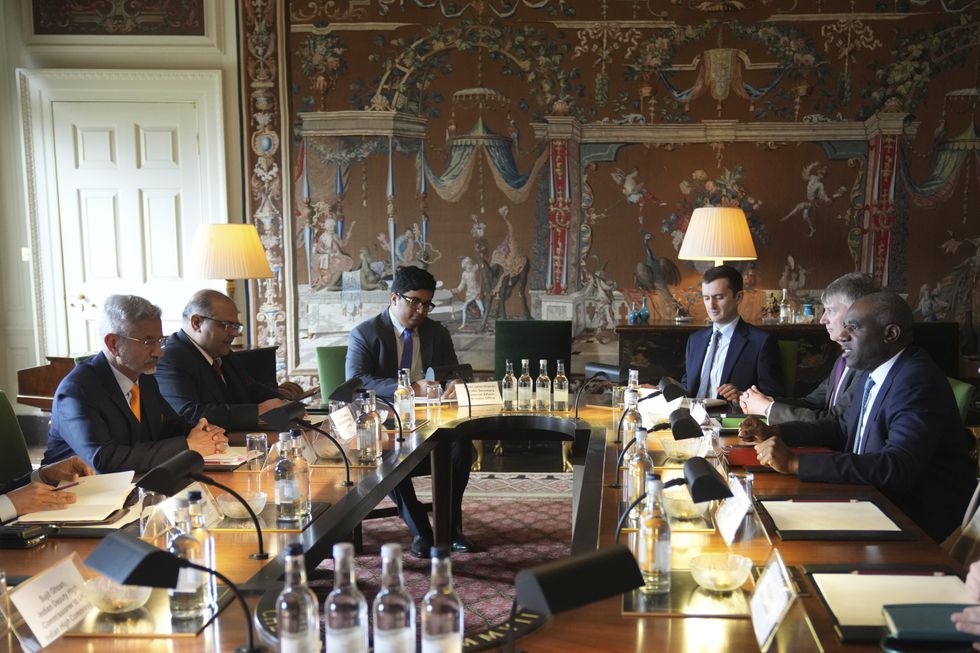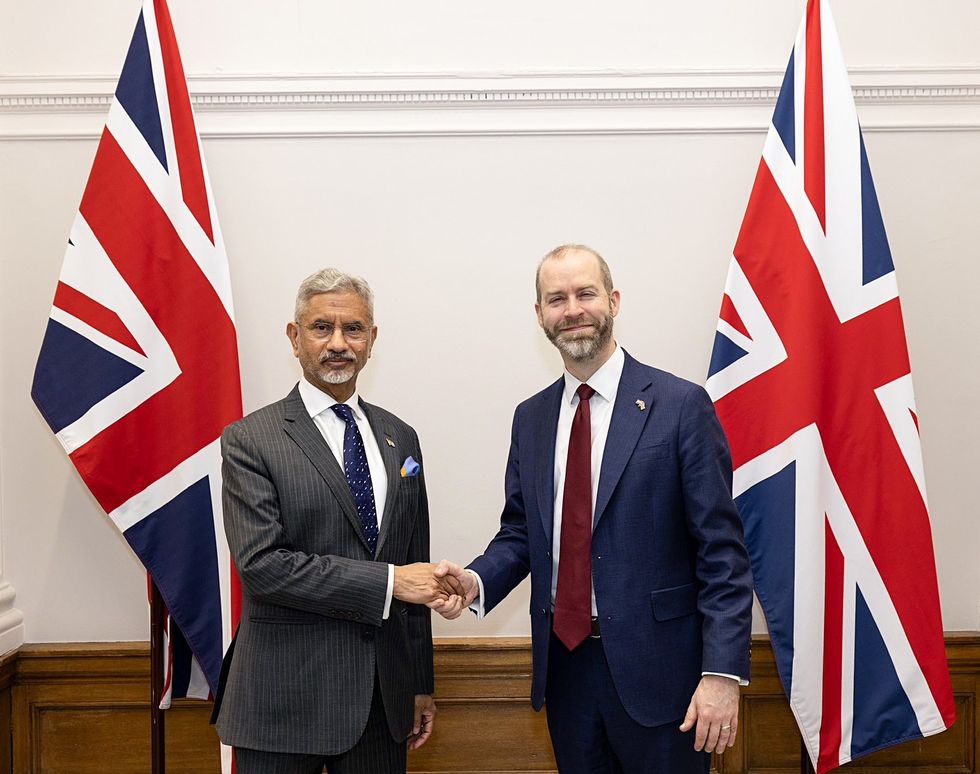INDIA’S external affairs minister, Subrahmanyam Jaishankar, has dismissed a claim by Conservative leader Kemi Badenoch that prime minister Narendra Modi’s government is demanding a more liberal visa regime as the price for signing a Free Trade Agreement (FTA) with the UK.
Jaishankar was asked about visas in a wide-ranging conversation last Wednesday (5) with Bronwen Maddox, director of the Royal Institute of International Affairs at Chatham House in London.
“Everything I have read about the FTA in the press is inaccurate, so I am glad you have asked me (about visas),” began Jaishankar. “Visas have nothing to do with it,” he asserted. “I mean the only visas the FTA is concerned with are the visas for intra-corporate transfers which are (for) business people. I saw all these stories, all these reports that there are visa demands (from India).”
It was Badenoch’s responsibility to conduct negotiations for the FTA as business and trade secretary in then prime minister Rishi Sunak’s cabinet, which she then appeared keen to conclude.
But she took a different line during her campaign to be Tory leader when she told the Daily Telegraph she was being tough with the Indians on migration: “As business secretary, even as I was trying to do things to limit immigration, we had an India FTA where they kept trying to bring in migration and I said, ‘No.’ It’s one of the reasons why we didn’t sign it.”
But Badenoch’s critics have said hers was merely a cynical ploy to try and win the votes of right-wing Conservative party members.
Asked by Bronwen why an FTA still has not been signed despite optimistic noises from both sides, India’s foreign minister replied: “Some progress has been made in the negotiation. First of all, let’s understand this is a serious negotiation. When you do an FTA, you really lock in your country into a long term (contract). You don’t do that in a hurry. There are a lot of forward predictions made, ‘What are the benefits and what are the costs?’ It’s a very complicated process. Given the complexity, it’s natural it would take time.”
However, Jaishankar said he didn’t think it would “take decades”.
“We would like to accelerate it,” he said, adding, “It’s not that there’s some big boulder out there we need to get out of the way. These are painstaking negotiations. And they are painstaking, because there are serious commitments being made which will have economic consequences which will affect the lives of people. There is a sense of responsibility with which negotiators go about their business.”
After meeting the UK prime minister Sir Keir Starmer, business and trade secretary Jonathan Reynolds and the foreign secretary David Lammy, Jaishankar said he “got the consistent message from them that the British side is also interested in moving forward”.
The two sides remained in touch after a further round of negotiations with Reynolds in India last month. “I had a few points to convey on behalf of my concerned colleagues. I am cautiously optimistic. It’s hard to say (when the FTA will be signed), but I certainly would hope that it doesn’t take that long.”
Jaishankar offered an inducement to Britain by saying the impact of the FTA would extend beyond trade and the economy. “It will have a larger relationship impact. They will be encouraged to explore a lot of other possibilities.
“I will give you an example. We’ve had a British university actually open a campus in India. Now, that’s a big deal.”
He was probably re- ferring to the University of South- a m p t o n , which has opened a campus near Delhi with plans to begin operations in August 2025. Jaishankar stressed: “It’s a big deal, because when we have a few successful cases, these num - bers will g r o w , now that we have allowed foreign universities to open up the education sector.
“If you look at the numbers, we have 1.25 million students going abroad. It would be at least twice that number if they had the opportunity. There will be many others if they saw universities come to their homes or nearby instead of them going out (of India). So, I think of the education sector as a completely new area which would open up.”
Until now, foreign universities have not been allowed to open campuses in India. But some Russell Group universities would like to do so, along with a number of well-known public schools.
Cipla chairman Yusuf Hamied has tried to persuade his alma mater to open a campus in India, but so far Cambridge is unwilling to dilute its brand.
Jaishankar speculated about what might happen after the signing of an FTA: “When you have something momentous happen in a relationship, it will have a ripple effect in a whole lot of other sectors.”
He went further: “I think that similarly we are considering making some significant changes to our nuclear policy, including amending our liability legislation and also contemplating (use of) private sector operators. That, too, is a potential area of collaboration.”
Last year’s Grant Thornton India meets Britain Tracker report, compiled in partnership with the Confederation of Indian Industry (CII), revealed Indian investment has been hugely beneficial for the UK economy.
Anuj Chande, partner and head of the South Asia Group at Grant Thornton, set out the headline figures: “Our 2024 research identified a record 971 Indianowned companies operating in the UK, up from 954 in 2023, with combined revenues of £68.09 billion, a strong increase on the £50.5bn reported in 2023. This growth can be attributed, in part at least, to the increasing normalisation of the wider business environment as the long tail of Covid-19 disruption subsides.”
He added: “The 971 companies in our research employed 118,430 people, up from 105,931 in 2023, and paid £1.17bn in corporation tax, compared with £944 million in 2023.”
Asked about whether Indians would grow older before they became more prosperous, Jaishankar expressed his personal opinion: “We are roughly a $3,000 minus per capita economy. What is different for us is that we have access to technologies and practices and possibilities that others at that point (in their development) did not. With digital, there is a great possibility to leap frog (ahead). I’m pretty sure that the growth of India will follow a pathway or trajectory which would not have been taken by any significant economy before us, simply because many of those possibilities did not exist for those economies.
“I am fairly sanguine that we have multiple decades of growth at, let’s say, seven per cent ahead of us.”




















